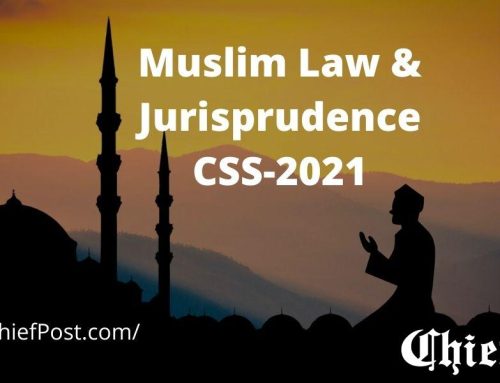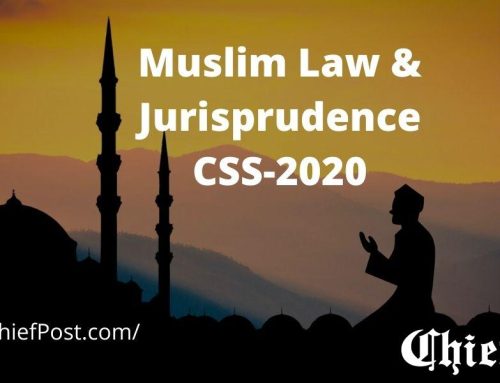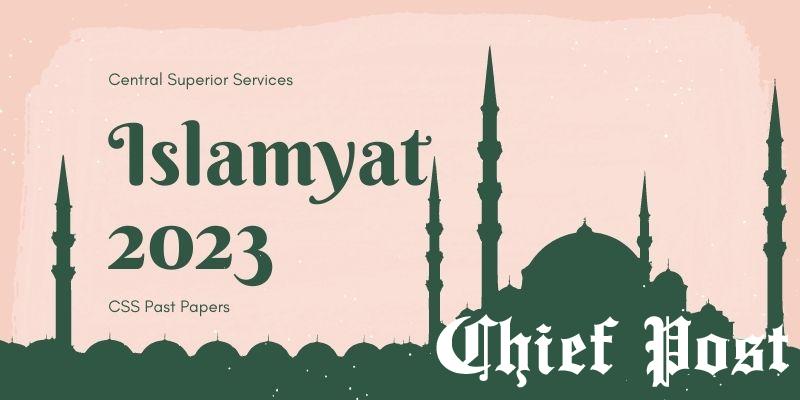
Muslim Law and Jurisprudence 2017 — CSS Past Paper
FEDERAL PUBLIC SERVICE COMMISSION
COMPETITIVE EXAMINATION-2017 FOR RECRUITMENT TO POSTS IN BS-17
UNDER THE FEDERAL GOVERNMENT
Muslim Law and Jurisprudence
TIME ALLOWED: THREE HOURS
PART-I(MCQS): MAXIMUM 30 MINUTES
PART-I (MCQS) MAXIMUM MARKS = 20
PART-II MAXIMUM MARKS = 80
NOTE:
- (i) Part-II is to be attempted on the separate Answer Book.
- (ii) Attempt ONLY FOUR questions from PART-II. ALL questions carry EQUAL marks.
- (iii) All the parts (if any) of each Question must be attempted at one place instead of at different places.
- (iv) Candidate must write Q. No. in the Answer Book in accordance with Q. No. in the Q.Paper.
- (v) No Page/Space be left blank between the answers. All the blank pages of Answer Book must be crossed.
- (vi) Extra attempt of any question or any part of the attempted question will not be considered.
PART-II
Q. 2 Give your peer analysis about the approaches of Al-Ghazali and Al-Shatibi on the doctrine of maqasid al-Shariah. Explore the primary and secondary purposes of this doctrine and discuss whether maqasid Al-Shariah are definite in number as determined by the earlier jurists or they may be increased. (20)
Q. 3 Muslim jurists classified offenses on the basis of right. Why was there need of this classification? What important consequences flow from it and what will be the result if this classification is changed? (20)
Q. 4 Define “Aqd” according to Muslim jurists. Which are the circumstances that affect the legal capacity of the parties to execute a contrast under Islamic Shariah? (20)
Q. 5 Discuss critically the admissibility of inserting stipulations in a marriage contrast by the parties. Your answer should be based on the debates of classical Muslim jurists and modern scholars. Your own opinion is also required. (20)
Q. 6 Imam Shafi’i studied deeply the principles of Hanafi school of law. He disagreed with some views of Hanafi jurists and established his own independent school. What were his differences with Hanafis and what did he contribute in modification of Islamic Law and jurisprudence? (20)
Q. 7 The four Sunni canonical schools hold Ijma to be a valid source of law. But it is said that “there is no workable machinery for the selection of qualified jurists to take part in Ijma and for establishing their deliberation in an authoritative form”. Discuss and give arguments for and against this opinion. (20)
Q. 8 Write notes on the following topics: (5 marks each) (20)
(A) Analysis of the terminology Usul al-fiqh
(B) Status of mutawatir tradition
(C) Talaq raj’i and its rules
(D) Section 4 of Muslim Family Law Ordinance 1961
**********










